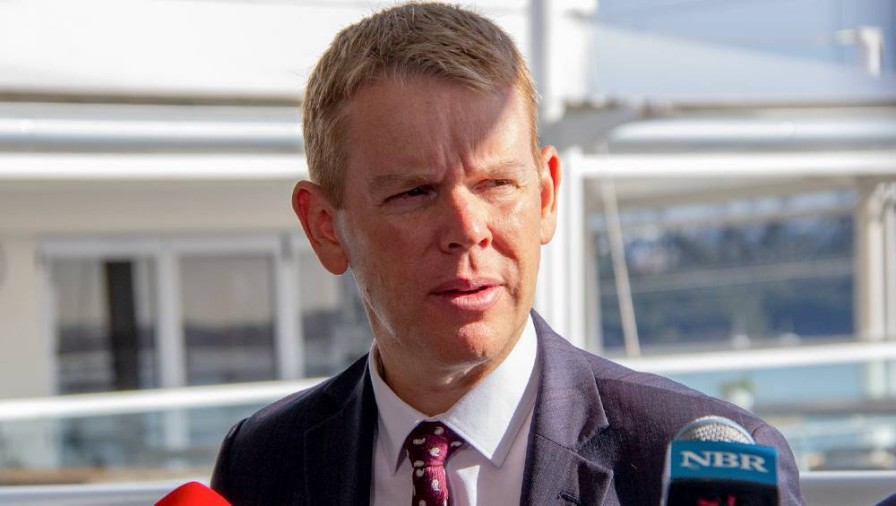Will Labour’s failure condemn the future, book questions
ANALYSIS: Economist Brian Easton lays out what went wrong.
In Open Seas: How the New Zealand Labour Government Went Wrong 2017-2023, by Brian Easton.
ANALYSIS: Economist Brian Easton lays out what went wrong.
In Open Seas: How the New Zealand Labour Government Went Wrong 2017-2023, by Brian Easton.
Surprisingly, little has been forthcoming from the academic world about where and why the Sixth Labour Government went wrong, except for an analysis of the 2023 election. But whenever there’s an intellectual gap, someone must fill it.
Brian Easton, a doyen among economists and social analysts, has done it by updating his seminal economic history of New Zealand, Not in Narrow Seas (2020). Initially, while considering events since 2020, he was expecting a “transformative” government that had been promised by Labour under Dame Jacinda Ardern.
Easton thought he could provide a bit of “intellectual weight” using his knowledge of economic history and the prospect of a change in direction after the complacent nine years of the Key-English Government. He also wanted to be forward-looking, extending the maritime metaphor of Stormy Seas (1996), Not in Narrow Seas, to In Open Seas.
But Easton was sadly disappointed. “[I]t became increasingly obvious to the informed that many of the Ardern-Hipkins Government’s policies were suicidal …” He had finished the first draft in July 2022 and did not expect Labour to lose the 2023 election.

Brian Easton.
This was disastrous timing for this book, to which Easton added the subtitle, How the New Zealand Labour Government Went Wrong 2017-2023. Rather than rewrite it to account for the switch to the Luxon-led coalition Government and wait for the next book publishing cycle in 2025, Easton decided to release the completed text as an e-book for instant consumption.
It is, as he also intended, more personal and more reflective than his earlier books. Easton’s reputation rests on his solid analysis of problems, always asking whether a policy or decision is correct – or has unforeseen consequences, usually of the wrong kind.
Here, he doesn’t hold back on his preferred solutions for a wide range of issues. Those familiar with Easton’s forensic work won’t be disappointed, but this rarely revealed the value judgments that underpinned it.
His distaste for everything neoliberal since the 1980s remains, despite most of his analysis reaching the same conclusions. The difference is that Easton admires the champion of moderation, John Rawls, the American philosopher whose brand of liberalism is infuriating and confusing in its complexity.
Rawls sounds like a libertarian but ties himself in knots by trying to define the “nearly perfect society” that should work best for the least advantaged. This description has been applied to the Scandinavian social democracies but in practice is impractical and unsustainable in the way communism failed. (A good critique of Rawls is in David Runciman’s The History of Ideas, reviewed here.)
Another Easton favourite is Karl Polanyi, a Viennese who also tried to find a compromise between a market-based society and social protection. In a splenetic attack on the philistines at the National Library and Archives New Zealand during their “cleansing” of foreign books, Easton records that Polanyi’s classic, The Great Transformation (1944), was among the titles for disposal. This was despite it being heavily influenced by another Viennese economist, Felix Schäfer, who arrived in Wellington in 1939 with his wife Adele, a specialist in Māori myth and language.

Karl Polanyi at his study institute, Concordia University.
Thankfully, the works of Karl Popper, another Austrian exiled in New Zealand at Canterbury University College during World War II, survived the cull. Popper moulded Easton’s scientific outlook that ideas and concepts must be abandoned if they are proved wrong.
Easton notes this is harder in the realm of social ideas, where they hang around long after they should be discarded. It’s Popper that led Easton to reject the notion that indigenous knowledge can be equivalent to science, as such ideas cannot be subjected to truthful analysis, nor indeed replace it.
The Indian economist and philosopher Amartya Sen is admired for his The Idea of Justice (2009) and the need for society to provide opportunity for all. Easton summarises himself as a “progressive, conservative liberal” – a combination of three identifiable political strands. This gives him appeal to a broad spectrum of views. For example, his judgments on the woke cancel culture, the mediocrity that prevails in the universities, and the low level of public discourse will be welcomed by many on the right. They are the icing on a substantial cake.
He was already a public intellectual in the making when I first met him at the University of Canterbury in 1965. He was then a man of the left but evolved to the centre as the head of the NZ Institute of Economic Research with a mission that business should benefit society rather than the other way around.
During the Rogernomics era, when the economy went through its no-gain-without-pain period, Easton remained the prophet Jeremiah who warned against supping free-market snake oil. Occasionally, he was applauded by libertarians when he opposed all forms of centralisation and supported subsidiarity.
But he curried little favour with the establishment or anyone else. In a moving piece of introspection, he describes the emotional costs of being a solitary voice, spurned by all who came under his withering criticism.
The scope of his scrutiny is unparalleled among commentators, most of whom lack his pursuit of evidence that might challenge a policy. Yet he doesn’t claim to be expert in every field and avoids topics that he hasn’t fully researched. (Typically, his latest blog at Pundit, on road user charges, comes late in the debate but is more informed than most contributions.)
In 400 pages, In Open Seas has some 29 chapters that describe a litany of public policy failures over the past two decades. An aid to online readers is a summary of them as an appendix. Easton is eager that these are a starting point for anyone wanting to advance quality policymaking.

Labour Prime Minister Chris Hipkins.
The ‘policy bonfire’ after Ardern’s departure is a case in point. This arose from Labour’s leadership failings; it was not policy driven and had no framework to implement the policies it had.
“Labour lacked vision – not just the aspirations without any plans to deliver them, but a coherent account of what was happening in the world, together with a direction the party intended to respond to and shape.”
This contrasted with the role of the left from the 19th century, a period marked by colonisation, industrialisation, and urbanisation.
Today’s major issues, such as migration and diversity, the Treaty of Waitangi, the healthcare system, education and science, inequality, poverty, and climate change, are all now being put through policy prisms that differ from Easton’s, but the likely results will not be much different from past results.
Take child poverty, which came up again in the past week. It has been the subject of numerous commissions and expert panels over the past three decades. According to Easton, all reinforced the “New Zealand practice of neither reviewing its history nor learning from its mistakes...
“Because they did not understand what it was doing, the Ardern-Hipkins Government accomplished little [by] fiddling around for marginal improvements. It had a tendency to articulate aspirations and think that was sufficient to accomplish them.”
I suspect the coalition Government will not be known for its failure to deliver. This leaves Easton in a dilemma for his next book. He dismisses the legacy of neoliberalism for being too optimistic about its achievements. Because Labour failed, his predictions for the future are as deeply pessimistic as Jeremiah’s. It will be interesting to see whether a new generation of optimists can revive the 'animal spirits' unleashed in the 1980s.
In Open Seas: How the New Zealand Labour Government Went Wrong 2017-2023, by Brian Easton (Kea Point, Amazon Kindle Edition).
Nevil Gibson is a former editor at large for NBR. He has contributed film and book reviews to various publications.
This is supplied content and not commissioned or paid for by NBR.
Sign up to get the latest stories and insights delivered to your inbox – free, every day.